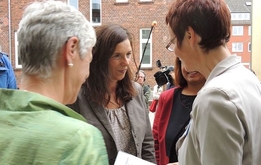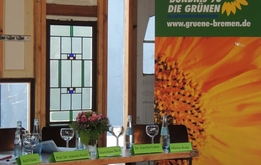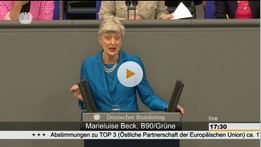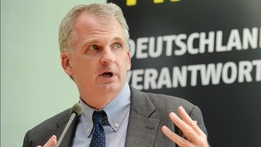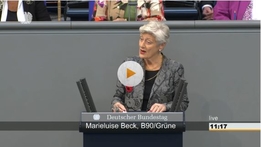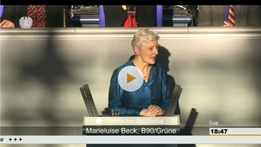Marieluise Beck, Spokesperson on Eastern Europe, comments on the arrest of Ales Bialiatsky, chairman of the human rights organization “Viasna” in Belarus:
Europe’s last dictator, President Lukashenko of Belarus, has struck again. With almost all the leading figures in the political opposition now in detention, the chairman of the human rights organization “Viasna” has been arrested as well, allegedly for tax fraud. But this matter not only concerns Lukashenko; it also concerns Lithuania and therefore the EU.
After the manipulated elections, the European Union made grandiose statements about its intentions to redouble its efforts to support civil society in Belarus. However, it seems to have little idea of how to assist dissidents operating in authoritarian regimes. In a country like Belarus, organisations which have virtually no prospect of being able to register officially have to be resourceful in the way they manage their financial resources. It would not be appropriate to expect the opposition in Belarus to operate a system of double-entry bookkeeping and submit its paperwork to the President.
When a country like Lithuania – which, as a member of the EU, should be supporting the EU’s united stance on isolating the Lukashenko regime – provides “administrative assistance” to Belarus by disclosing details of Viasna’s financial arrangements to the Belarusian authorities, its action clearly conflicts with the foreign policy decisions taken by the EU.
The Lithuanian government’s claims that it was not aware of Ales Bialiatsky’s status are scandalous. In the best-case scenario, the Lithuanian government could be accused of inexcusable naivety. In a worse case, it could be said to be engaging in straightforward power politics, its willingness to deliver Belarusian dissidents to their fate being driven by its desire to maintain good relations with its neighbour.
Federal Foreign Minister Guido Westerwelle should raise this issue in the Council of the European Union and bring pressure to bear to secure Ales Bialiatsky’s immediate release. The German Federal Government must also honour its pledge to provide funding with a minimum of red tape so that these resources genuinely benefit Belarusian civil society.








